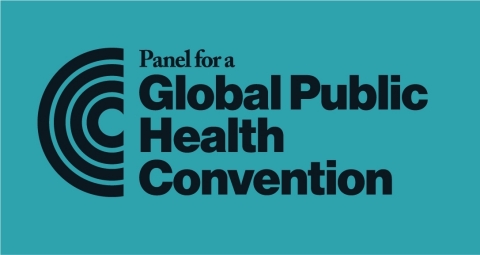In Shadow of Omicron, Leaders Agree to Start Pandemic Treaty Negotiation
In Shadow of Omicron, Leaders Agree to Start Pandemic Treaty Negotiation
LONDON & MIAMI--(BUSINESS WIRE)--With a fresh wave of COVID-19 sweeping across Europe, new variant Omicron interrupting air travel and harming economies, the Panel for a Global Public Health Convention welcome the agreement at the World Health Assembly to start negotiating a new legally binding treaty, convention or international agreement on pandemic prevention, preparedness and response.
We wholeheartedly commend the Member States of the World Health Organisation in their decision to go forward in negotiating a legally binding instrument. This decision was bold, but vital for the world. Member States recognized that we must all work together, collaboratively and in coordination. Our war is with COVID-19 and the infectious viruses of the future — not with each other. We hope the negotiation will move with all speed to develop a robust and binding instrument.
The hard work begins now. To prevent future pandemics, it is important that any new treaty rooted in the WHO Constitution includes the following parameters so that countries:
- Develop and upgrade health surveillance and pandemic preparedness plans so that when an early warning signal is received all countries take quick action, notify the World Health Organization and other countries of outbreaks, and provide ongoing real-time data, including virus samples. This will ensure a basis for early public health recommendations and measures and speed up research and development.
- Take quick action, at an early warning stage and based on WHO’s advice, when a Public Health Emergency of International Concern is declared, and throughout the ensuing emergency or pandemic.
- Provide clear mechanisms to ensure equitable manufacturing and distribution of PPE, tests, treatments and vaccines so that all countries can detect, respond, treat and protect.
- Establish a sustainable financing mechanism so that low- and middle-income countries can upgrade surveillance and preparedness support under the principles of global equity and solidarity to carry this out and support the development of global public goods. It is also critical that countries are not penalized for immediately reporting outbreaks.
- Support accountability by accepting independent monitoring, as well as quick, transparent and independent verification of data, preparedness capabilities, and the adequacy of outbreak and pandemic response.
“While the world’s focus has remained on COVID-19 for the majority of the last two years, it is critical that leaders work with urgency and seize the historic opportunity to safeguard the world,” said Dame Barbara Stocking, Chair of the Panel for a Global Public Health Convention. “The treaty or agreement must ensure the sharing of data and genome sequences of emerging viruses, that independent monitoring is initiated to support effective outbreak response and that any potential vaccines and drugs derived from research are shared as a global public good.”
Progress at the World Health Assembly now means an intergovernmental process will start and it is critical that leaders bring multiple stakeholders together and into the discussions as successful implementation will need buy-in and participation throughout the process.
The Panel for a Global Health Convention was launched in April 2021 and is working with leaders around the world to develop a global public health convention by bridging critical gaps in global public health architecture and policy frameworks.
Contacts
Anicca Liu, MPH, MA
Project Manager
Panel for a Global Public Health Convention
a.liu5@miami.edu
